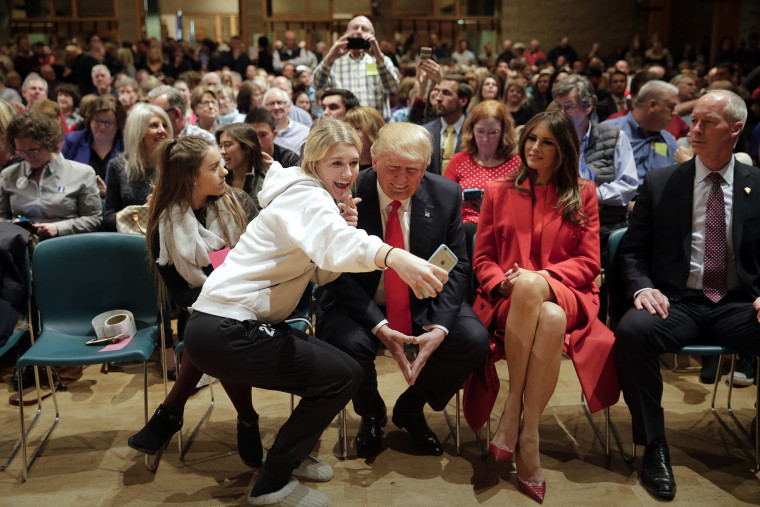When it comes to the religious right movement, there have long been two broad camps: those who put politics above theology, and those who do the opposite. When TV preacher Pat Robertson endorsed Rudy Giuliani's 2008 presidential campaign, for example, he was clearly representing the former, to the consternation of many social conservatives who value principle over party.
James Dobson, best known for his Focus on the Family empire, has generally been part of that latter camp, occasionally even butting heads with the Republican Party when it's fallen short of his expectations. Dobson, for good or ill, has never been a "team player" in GOP politics.
It made this New York Times report all the more surprising.
Has Donald J. Trump become a born-again Christian? That is the suggestion of James C. Dobson, one of America's leading evangelicals, who said Mr. Trump had recently come "to accept a relationship with Christ" and was now "a baby Christian." Dr. Dobson, the founder of Focus on the Family and one of the country's most prominent social conservatives, gave his account at a meeting Mr. Trump had in New York on Tuesday with hundreds of Christian conservatives.
Dobson, speaking with the Rev. Michael Anthony, reportedly said he knew the individual who led Trump to this spiritual conversion. "I don't know when it was, but it has not been long," Dobson said. "I believe he really made a commitment, but he's a baby Christian."
It's important to note that, in Christianity, phrases like "born again" and "accepting a relationship with Christ" are terms of art. This isn't a situation in which Trump was a Christian before and a slightly different kind of Christian now; it's far more specific.
If Dobson is correct, Trump, at some point quite recently, underwent a rather dramatic religious conversion. As the Times' report noted, "For evangelicals, 'accepting Christ' is at the heart of becoming a genuine Christian, and refers to acknowledging sin and declaring the need for Jesus Christ as savior."
The question then becomes, is Dobson right?
On "Meet the Press" over the weekend, NBC's Chuck Todd asked Trump campaign chairman Paul Manafort about the candidate's spiritual shift. "I'm not going to speak to Donald Trump and his embrace of religion," Manafort responded. "You talk to him about that."
Fair enough, although Trump hasn't said anything publicly, in any interview since launching his campaign over a year ago, about a born-again conversion.
I'm not saying it didn't happen -- some prefer to keep such matters private -- but if Donald J. Trump, a thrice-married adulterer who owned casinos and seems to know effectively nothing about religion, recently accepted a personal relationship with Jesus Christ, it would be a striking change in personal direction for the Republican Party's presumptive presidential nominee. Indeed, I can't think of any major-party nominee in American history who's dramatically changed his or her religious beliefs during the presidential campaign.
Perhaps the GOP candidate can shed some light on this?
I can appreciate the fact that many will believe such matters are none of the voters' business, and it's not an unreasonable point. But Trump, in particular, has gone after Hillary Clinton's faith, insisting Americans "don't know anything about Hillary in terms of religion." In fact, Trump has been quite aggressive in using faith as a campaign weapon of sorts, targeting Republican rivals and critics by questioning their spiritual beliefs.
With this in mind, it's not as if Trump can credibly claim his own beliefs are off-limits.
